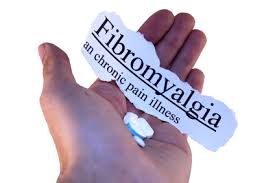- Home
- Editorial
- News
- Practice Guidelines
- Anesthesiology Guidelines
- Cancer Guidelines
- Cardiac Sciences Guidelines
- Critical Care Guidelines
- Dentistry Guidelines
- Dermatology Guidelines
- Diabetes and Endo Guidelines
- Diagnostics Guidelines
- ENT Guidelines
- Featured Practice Guidelines
- Gastroenterology Guidelines
- Geriatrics Guidelines
- Medicine Guidelines
- Nephrology Guidelines
- Neurosciences Guidelines
- Obs and Gynae Guidelines
- Ophthalmology Guidelines
- Orthopaedics Guidelines
- Paediatrics Guidelines
- Psychiatry Guidelines
- Pulmonology Guidelines
- Radiology Guidelines
- Surgery Guidelines
- Urology Guidelines
4‐weeks of nerve stimulation significantly benefits fibromyalgia patients: Clinical Trial

Fibromyalgia is characterized by pain and fatigue, particularly during physical activity. It is the second most common condition affecting bones and muscles. It is often misdiagnosed and misunderstood and unfortunately, there is no cure for the disease.
Transcutaneous electrical nerve stimulation (TENS) activates endogenous pain inhibitory mechanisms. It delivers electrical currents through the skin to activate nerve pathways in the body that inhibit pain. The researchers conducted a Clinical trial to evaluate if using TENS during activity would improve movement‐evoked pain and other patient‐reported outcomes in women with Fibromyalgia.
A treatment involving electrical nerve stimulation helped women with fibromyalgia in a recent clinical trial. The findings are published in Arthritis & Rheumatology.
After 4‐weeks, the active‐TENS group reported a greater reduction in movement‐evoked pain and fatigue than placebo‐TENS. A greater percentage of the active‐TENS group reported improvement on the global impression of change when compared to placebo‐TENS. There were no TENS‐related serious adverse events and less than 5% of participants experienced minor adverse events from TENS.
In this trial, TENS resulted in significant improvements in movement-related pain and fatigue compared with placebo or no TENS.
The TENS treatment was given along with standard treatments for fibromyalgia. Thus, it can provide people with a tool to help manage pain and fatigue without taking additional pain medications.
The researchers concluded that among women with FM and stable medication, 4‐weeks of active‐TENS use compared with placebo‐TENS or no‐TENS resulted in a significant improvement in movement‐evoked pain and other clinical outcomes. Further research is needed to examine effectiveness in a real-world, pragmatic setting to establish clinical importance of these findings.
"TENS is available over the counter, is inexpensive, and is safe and easy to use," said senior author Kathleen A. Sluka, PT, PhD, FAPTA, of the University of Iowa. "It can provide a self-management option for people with chronic pain, particularly fibromyalgia, to provide an additional level of pain relief.
Arthritis & Rheumatology
For more details click on the link: http://dx.

Disclaimer: This site is primarily intended for healthcare professionals. Any content/information on this website does not replace the advice of medical and/or health professionals and should not be construed as medical/diagnostic advice/endorsement or prescription. Use of this site is subject to our terms of use, privacy policy, advertisement policy. © 2020 Minerva Medical Treatment Pvt Ltd